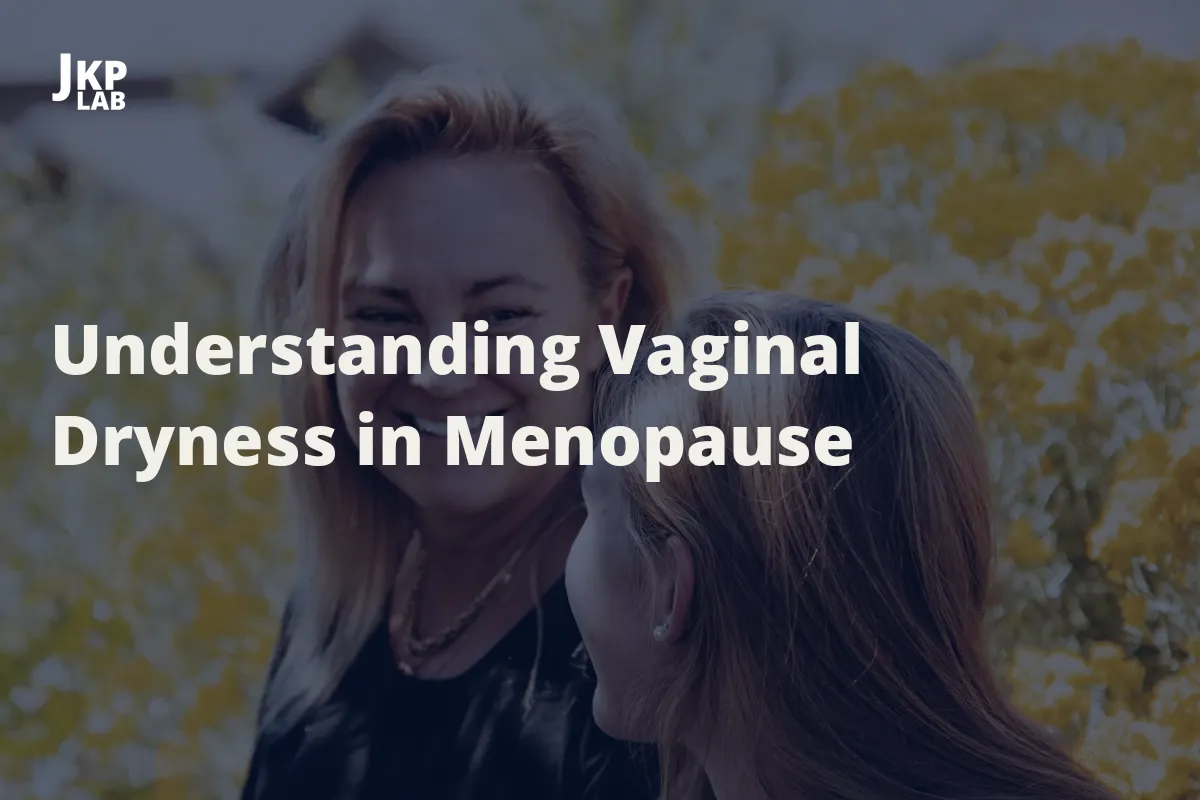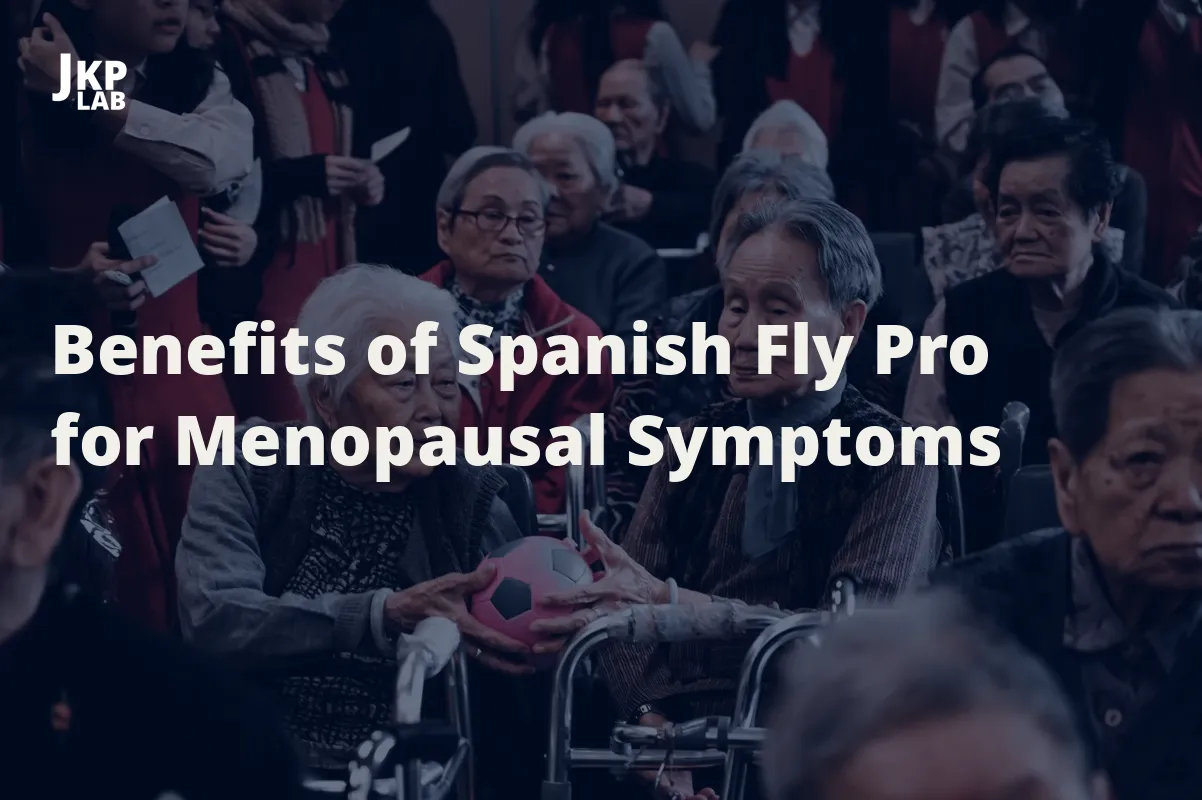
Understanding Vaginal Dryness in Menopause
Menopause is a natural phase in a woman’s life, marking the end of her reproductive period. As the body undergoes various hormonal changes, numerous symptoms may arise. Among these, vaginal dryness is a prevalent yet less-discussed concern.
Vaginal dryness refers to the lack of moisture in the vaginal area, leading to discomfort, itching, and sometimes even pain during intimate activities. This is because the body’s production of estrogen, a hormone responsible for maintaining vaginal health and lubrication, decreases during menopause.
But why is vaginal dryness a cause for concern? For starters, it can significantly affect a woman’s quality of life. Discomfort during everyday activities, a diminished interest in intimacy, and even emotional distress are all potential outcomes of this symptom.
For a more detailed overview of menopause and its implications, you can refer to this comprehensive guide: All You Need to Know About Menopause.
To understand vaginal dryness better, it’s essential to delve deeper into its causes and the symptoms that accompany it. By addressing the root of the problem, finding an effective solution becomes much more achievable.

Causes and Common Symptoms
During menopause, the body experiences a decline in estrogen production. Estrogen, a vital hormone for women, plays a crucial role in maintaining the elasticity and moisture of the vaginal tissues. As its levels drop, the tissues become thinner, less elastic, and drier.
Vaginal dryness is not just an isolated symptom; it often comes accompanied by other indicators. Some common symptoms related to vaginal dryness include:
-
Itching and Burning: A persistent itching sensation inside and around the vaginal area. Burning, especially during urination, can also be a sign.
-
Painful Intercourse: The lack of natural lubrication can make intimate encounters uncomfortable or even painful.
-
Light Bleeding After Intercourse: Due to the thinning of the vaginal walls, minor injuries can lead to light bleeding post-intimacy.
-
Frequent Urinary Tract Infections (UTIs): A dry vaginal environment can increase the susceptibility to infections.
-
General Discomfort: A continuous feeling of dryness or tightness in the vaginal area, which can be bothersome during daily activities.
It’s crucial to remember that while these symptoms are common, every woman’s experience with menopause and vaginal dryness is unique. Some might face severe symptoms, while others may only experience them mildly or not at all. Recognizing and understanding these symptoms is the first step towards seeking effective solutions and improving overall well-being.

The Emotional Impact on Relationships
Vaginal dryness doesn’t just affect physical well-being; it casts a shadow on emotional and relational health too. While the discomfort and pain can be distressing, the emotional implications can sometimes be even more challenging to navigate.
Reduced Intimacy
A primary concern for many women experiencing vaginal dryness is the decline in their interest in intimacy. The anticipated pain and discomfort can lead to apprehension or avoidance of intimate encounters altogether. Over time, this can create a distance between partners, making it difficult to maintain a close emotional connection.
Decreased Self-Confidence
The physical changes accompanying menopause, especially vaginal dryness, can lead to a dip in self-confidence. Some women may feel less attractive or less feminine, leading to feelings of inadequacy or even depression.
Misunderstandings and Lack of Communication
Due to the private nature of the problem, many women might not discuss their symptoms with their partners. This lack of communication can lead to misunderstandings, with partners possibly misinterpreting the reduced interest in intimacy as a lack of love or attraction.
Stress and Anxiety
The persistent discomfort, coupled with concerns about intimacy, can lead to increased levels of stress and anxiety. Constantly worrying about the next intimate encounter or the potential pain it might bring can overshadow other joys of life.
It’s essential to recognize these emotional challenges and address them proactively. Open communication with partners, seeking support, and considering solutions can pave the way for improved emotional well-being and strengthened relationships.

Natural Ways to Combat Dryness
The challenges of vaginal dryness during menopause can be daunting, but nature offers various remedies that can be explored for relief. By tapping into these natural solutions, women can take proactive steps to manage their symptoms.
Hydration is Key
Drinking plenty of water helps maintain overall body hydration. A well-hydrated body ensures that the mucous membranes, including those in the vaginal area, remain moist.
Omega-3 Fatty Acids
Found in foods like flaxseeds, chia seeds, and fatty fish such as salmon, omega-3 fatty acids can be beneficial. They are known to support the body’s natural lubrication and can be a helpful addition to the diet.
Aloe Vera
Aloe vera is a plant known for its moisturizing properties. Aloe-based lubricants or gels can offer immediate relief from dryness and are gentle on the skin.
Regular Exercise
Physical activity, especially pelvic exercises, can boost blood circulation to the vaginal area. Improved blood flow can aid in maintaining tissue health and elasticity.
Soy Products
Foods rich in soy, like tofu and soy milk, contain isoflavones. These compounds mimic estrogen in the body and can help alleviate some menopausal symptoms, including vaginal dryness.
Avoid Irritants
Certain products, such as perfumed soaps or douches, can aggravate dryness. Opting for unscented, gentle cleansers can make a significant difference.
Stay Relaxed
Stress can exacerbate vaginal dryness. Engaging in relaxation techniques like meditation or deep breathing can help keep stress at bay.
While these natural remedies can provide relief, it’s always advisable to consult with a healthcare provider before making significant changes to one’s routine or trying new treatments. They can offer tailored advice and suggest additional solutions that might be more effective.

Introducing Spanish Fly Pro: A Solution?
In the journey to address vaginal dryness, various solutions may come up. Among them is a product that has gained attention for its potential benefits: Spanish Fly Pro. But what exactly is it, and how can it help women experiencing menopausal symptoms?
What is Spanish Fly Pro?
Spanish Fly Pro is a dietary supplement formulated to enhance arousal, sex drive, and the ability to achieve orgasms in both men and women. Made from natural ingredients, it aims to provide a safe and effective way to boost sexual health.
How Can It Help with Vaginal Dryness?
While Spanish Fly Pro’s primary focus is to increase arousal and sex drive, these effects can indirectly aid in alleviating vaginal dryness. When arousal occurs, the body naturally increases vaginal lubrication. Hence, by boosting arousal, Spanish Fly Pro can contribute to a more comfortable and enjoyable intimate experience.
Safety and Usage
Being a natural product, Spanish Fly Pro tends to have fewer side effects compared to synthetic medications. However, like all supplements, it’s essential to use it as directed and ensure that it doesn’t interact with any other medications or underlying health conditions. Consulting a healthcare provider before starting any new supplement is always a prudent step.
In summary, while Spanish Fly Pro might not be a direct remedy for vaginal dryness, its ability to enhance arousal can be a valuable asset for women looking to reclaim their intimacy and comfort during menopause.

Benefits of Spanish Fly Pro for Menopausal Symptoms
Spanish Fly Pro isn’t just another supplement on the market. Its unique blend of natural ingredients offers a range of benefits, especially for women navigating the challenges of menopause.
Enhanced Arousal
One of the most prominent benefits of Spanish Fly Pro is its ability to increase arousal levels. An increase in arousal can lead to natural vaginal lubrication, which in turn can reduce discomfort during intimacy.
Boosted Sex Drive
Menopause can often be accompanied by a decrease in libido. Spanish Fly Pro, with its potent formulation, can reignite the passion and drive, allowing women to embrace their sexuality with confidence.
Improved Ability to Orgasm
For many women, achieving an orgasm can become challenging during menopause. This supplement assists in increasing sensitivity, making it easier for women to achieve and enjoy climaxes.
Natural Ingredients
Spanish Fly Pro is formulated with natural ingredients, ensuring fewer side effects and a gentler approach to enhancing sexual health. This makes it a preferred choice for those wary of synthetic medications.
Easy to Use
Spanish Fly Pro is simple to incorporate into daily life. Its user-friendly design ensures that one doesn’t need to follow complicated routines or procedures.
Supports Emotional Well-being
By addressing intimate challenges, Spanish Fly Pro can indirectly promote emotional well-being. Improved intimacy can lead to better relationships, increased self-confidence, and a more positive outlook on life.
In essence, Spanish Fly Pro offers a holistic approach to sexual health during menopause, not just by addressing physical challenges but also by promoting emotional health and well-being.

Concluding Thoughts: Empowering Choices in Menopause
Menopause, a natural transition in a woman’s life, presents a mosaic of physical and emotional challenges. Among these, vaginal dryness stands out, impacting not just personal comfort but relationships and emotional well-being. However, it’s essential to remember that solutions are within reach.
Spanish Fly Pro emerges as a promising ally in this journey. While it may not target vaginal dryness directly, its comprehensive approach to enhancing arousal and boosting intimacy offers a holistic solution. With the support of products like Spanish Fly Pro and other natural remedies, every woman can navigate menopause with confidence and grace.
Ultimately, the key lies in awareness, open communication, and informed choices. Embracing the changes of menopause doesn’t mean compromising on quality of life. With the right knowledge and tools, this phase can be a time of empowerment and renewed self-discovery.